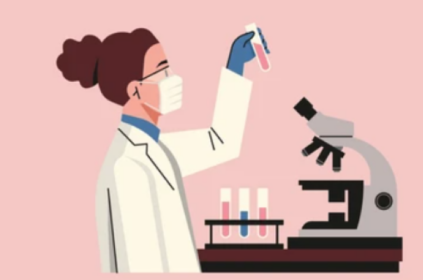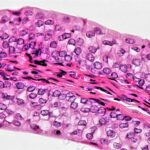Genome-wide association studies (GWAS) are designed to identify genomic variants linked to an increased risk of a disease or condition. The National Human Genome Research Institute explains that once researchers identify these variants, they can also begin searching for other variants that are directly linked to disease manifestation. This not only contributes to a more comprehensive understanding of the disease but allows for early patient monitoring and identification and could, eventually, be used to improve treatment development.
Inside Precision Medicine reports that a research team from the Vanderbilt-Ingram Cancer Center launched a GWAS focused on identifying genetic variants associated with triple-negative breast cancer (TNBC) in women of African heritage. In the past, this community has largely been excluded from studies and underrepresented in clinical findings. Improving health equity requires ensuring new avenues for research and exploration to benefit people from historically marginalized groups.
More Equitable Research
Study results were published in Nature Genetics. Altogether, researchers analyzed genomic data from 18,034 women of African ancestry who had breast cancer, as well as data from 22,104 controls. Given the size of the patient population screened, this is considered the largest GWAS of breast cancer within this particular community. After analyzing the genomic data, the researchers determined that:
Genetic variants at 12 loci were associated with breast cancer risk (P < 5 × 10−8), including associations of a low-frequency missense variant rs61751053 in ARHGEF38 with overall breast cancer (odds ratio (OR) = 1.48) and a common variant rs76664032 at chromosome 2q14.2 with triple-negative breast cancer (TNBC) (OR = 1.30).
Altogether, nine of the genetic loci were broadly associated with breast cancer, with the remaining three loci associated specifically with TNBC. Also of significance, five genetic loci were associated with estrogen receptor (ER)-positive breast cancer and three with ER-negative breast cancer.
Looking more specifically at TNBC, the research team identified 2,860 women with this particular cancer. When analyzing their data, over 15%+ of these women had six or more genetic loci associated with increased TNBC risk. In fact, these women had a significantly heightened risk of developing this form of cancer than people without the genetic loci.
More research is undoubtedly needed to expand our understanding of the genetic underpinnings of TNBC, as well as to contribute to more equitable research that centers individuals from marginalized backgrounds. Until we contribute to research that considers the needs of diverse communities, we cannot reach this point.
However, this initial research does suggest that genetic markers can be used to identify the risk of TNBC development in Black women. Additionally, the data, collected through the African Ancestry Breast Cancer Genetic consortium, will be used to shape global understanding and continued exploration.
An Overview: What is Triple-Negative Breast Cancer (TNBC)?
Ten to fifteen percent of breast cancers are triple-negative breast cancer. As BreastCancer.org explains, triple-negative breast cancer has no estrogen receptors, no progesterone receptors, and normal HER2 levels. Because of this, TNBC is often challenging to treat. This cancer doesn’t respond to hormone therapies or HER2-targeted therapies. It is also aggressive and has a worse prognosis, underscoring the necessity of identifying biomarkers and novel treatments to improve outcomes.
TNBC is most common in Black women, women younger than 40 years old, and those with BRCA1 mutations. In fact, Black women are 2-4x more likely than Caucasian women to develop this cancer.
Symptoms of TNBC are similar to other forms of breast cancer. If you have TNBC, you may show signs of a breast mass or lump, inflammation, breast or nipple pain, nipple inversion (turning inward), abnormal nipple discharge, swollen lymph nodes, and skin dimpling, redness, flakiness, or dryness.
Editor’s Note: Get Involved
Cancer doesn’t discriminate. WHATNEXT and its partners are interested in amplifying the voices of those from all identities and backgrounds. If you have a cancer journey to share, reach out here to learn more about how your voice can help spread awareness and inspire individuals from all walks of life.
breast cancer diversity equity health equity medical research oncology triple negative breast cancer
Last modified: June 21, 2024











